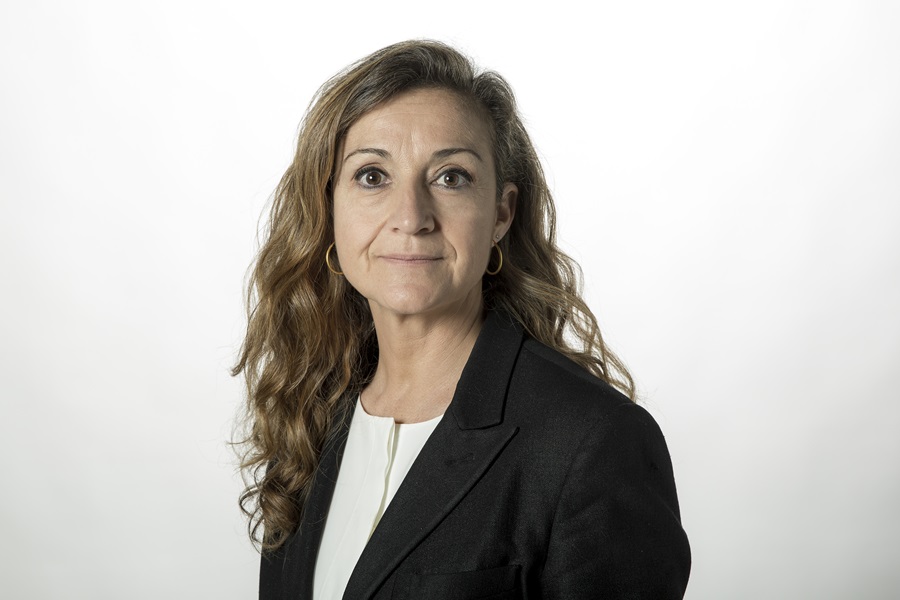- Face to face
- 7 de November de 2024
- No Comment
- 6 minutes read
Esther Vera: “I have done nothing without effort”

FACE TO FACE WITH
Esther Vera y García, journalist and political scientist, director of Ara newspaper
Esther Vera: “I have done nothing without effort”

Being the editor of Ara newspaper since 2016 is a significant challenge in a field—journalism—that remains quite saturated with testosterone. Esther Vera studied political science and journalism, later dedicating many years to international news. This led her to become a correspondent in Paris and Washington, after which she worked in radio, television, and the press.
How did you discover your passion for journalism?
I have always enjoyed reading newspapers and explaining things. I was the typical person to manage the summer camp or school magazine. In short, I love reading and writing, and I think what I seek is to try to understand.
What do you think should be more important in your work: vocation or profession?
Vocation alone cannot sustain a career of over thirty years. But without dedication to the work, one doesn’t go very far either. It’s a balance between professionalism and passion for the work. These terms aren’t mutually exclusive.
“I have always enjoyed reading newspapers and explaining things. I was the typical person to manage the summer camp or school magazine”
You have become one of the few women leading a newspaper, almost the only one in Catalonia. What does the word “effort” inspire in you?
I have done nothing without effort. I probably learned this in a working-class family with parents and siblings who made effort and culture the driving forces of their lives.
On September 12th, you presented Gregorio Luri’s latest book, Prohibido Repetir, which discusses many of the educational errors in our country. How did you come to know Gregorio?
It’s a beautiful story. We share a profound absence. We met professionally because I wanted someone with his freedom and intellectual rigour to write for the newspaper. During a formal lunch, we realised that my sister Íl·lia had also been a friend of his. What began as a formal conversation ended in a warm, heartfelt embrace.
If you had to define Gregorio with two adjectives, what would they be?
Rigour and intellectual bravery.
During your career, you’ve been in various countries. In which one would you have stayed longer? Why?
You learn things everywhere. I’m fascinated by Russia. But going on holiday or staying for a season is one thing; living and working is another. My ideal balance is Europe, although I would also be delighted to live in major East Coast cities in the United States.
What positive connections do you see between your professional success and your educational background at school and college?
I didn’t attend elite schools, but I learned a few things and respect for others. We lived in Badalona, and my education helped me understand the world. Mostly, I learned at home, where curiosity was boundless, and learning was a way of life and a means of finding meaning.
“We can support, highlight issues, and open debates, but when the classroom door closes bringing joy inside, genuine knowledge is lost, and nothing can be done about it”
Regarding the current educational system, if you had been educated within it, would it have improved or worsened your professional present? Why?
I don’t really know. It depends on the school and the teachers, as they are ultimately what matters. If you find a teacher who conveys a passion for learning, you’re saved. At the schools I attended, hard work and rote learning were essential—a way of building knowledge with structure and discipline. Sadly, I am somewhat pessimistic about the current educational situation. I would have loved to send my daughter to a state school, but I’m not confident it could provide her with substantial knowledge.
How do you personally believe journalism should contribute to improving the current educational system? And how should education contribute to developing critical minds that value the democratic importance of a rigorous, free press?
Our role is to demand quality, rigour, and resources from administrations, as well as training, dedication, and responsibility from teachers. We can support, highlight issues, and open debates, but when the classroom door closes bringing joy inside, genuine knowledge is lost, and nothing can be done about it.
Source: educational EVIDENCE
Rights: Creative Commons


